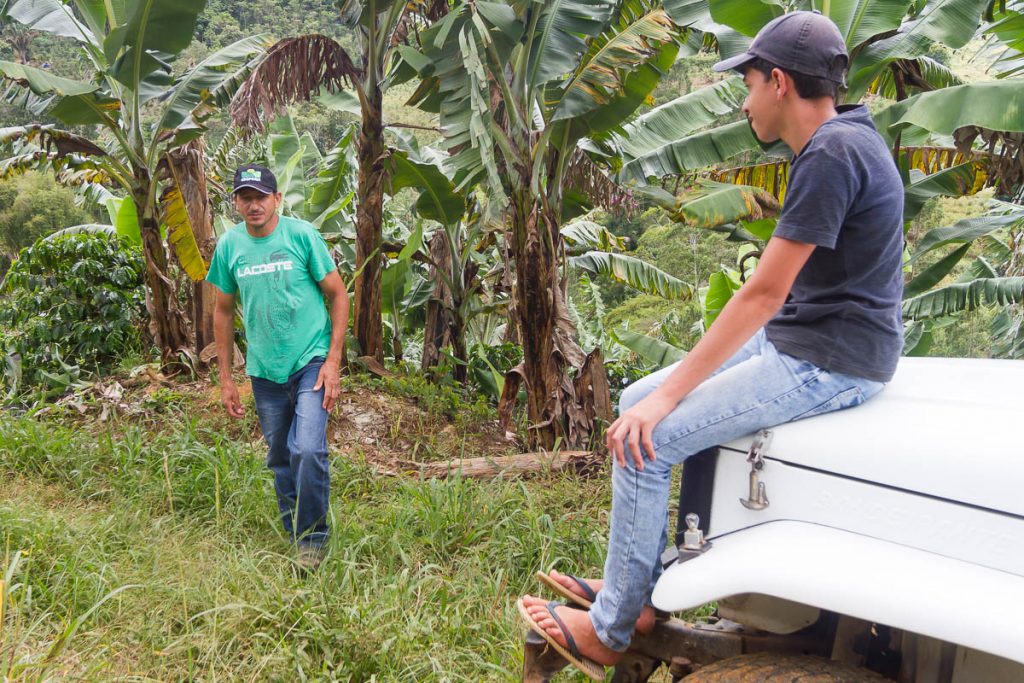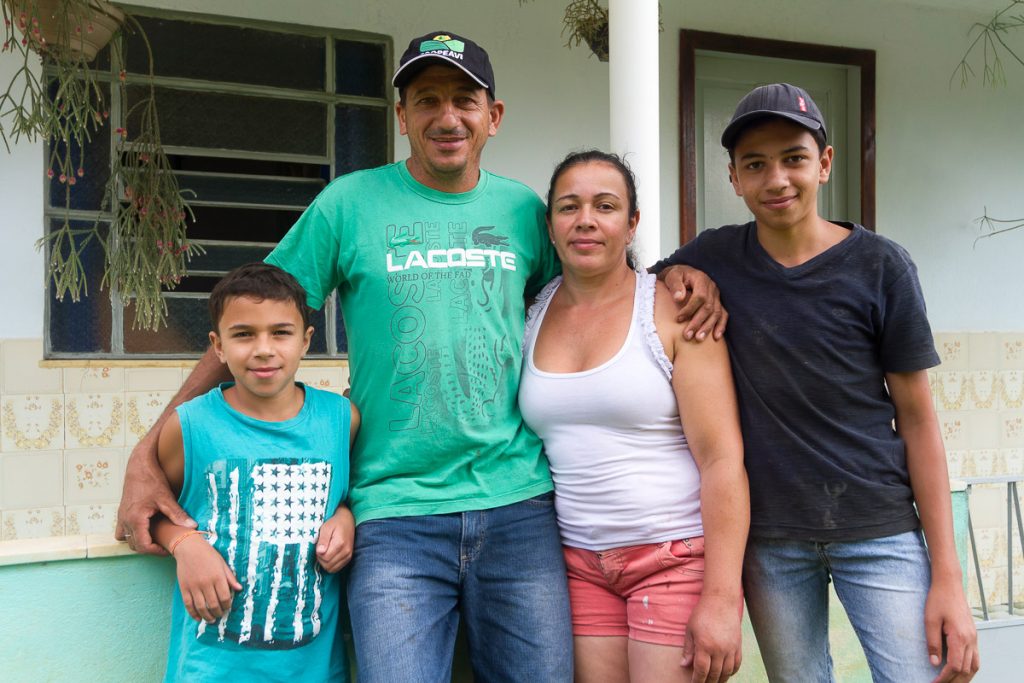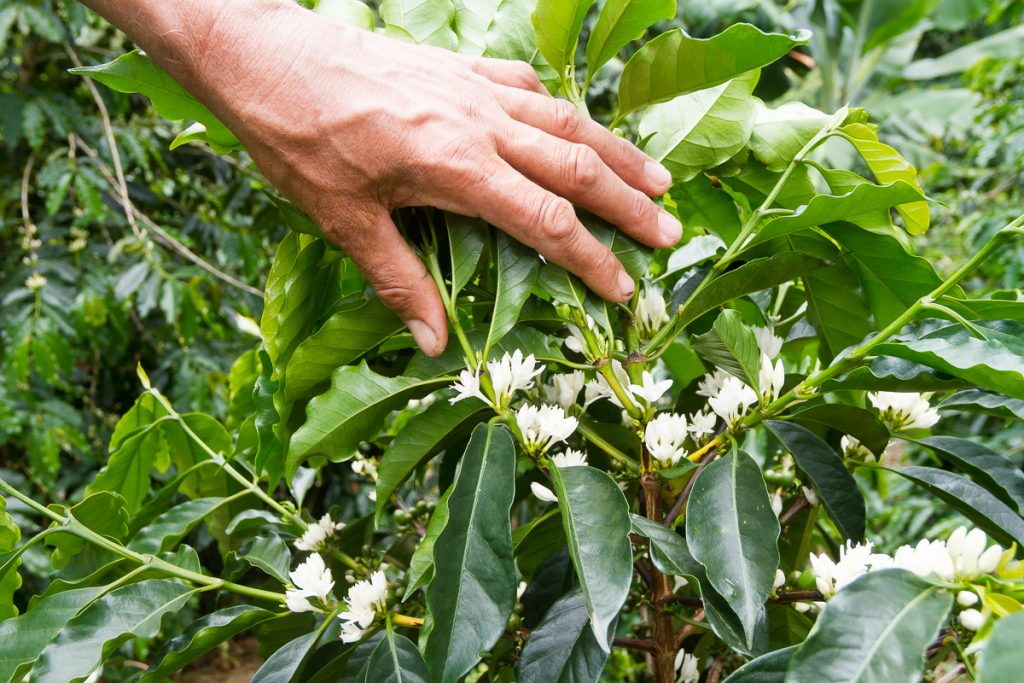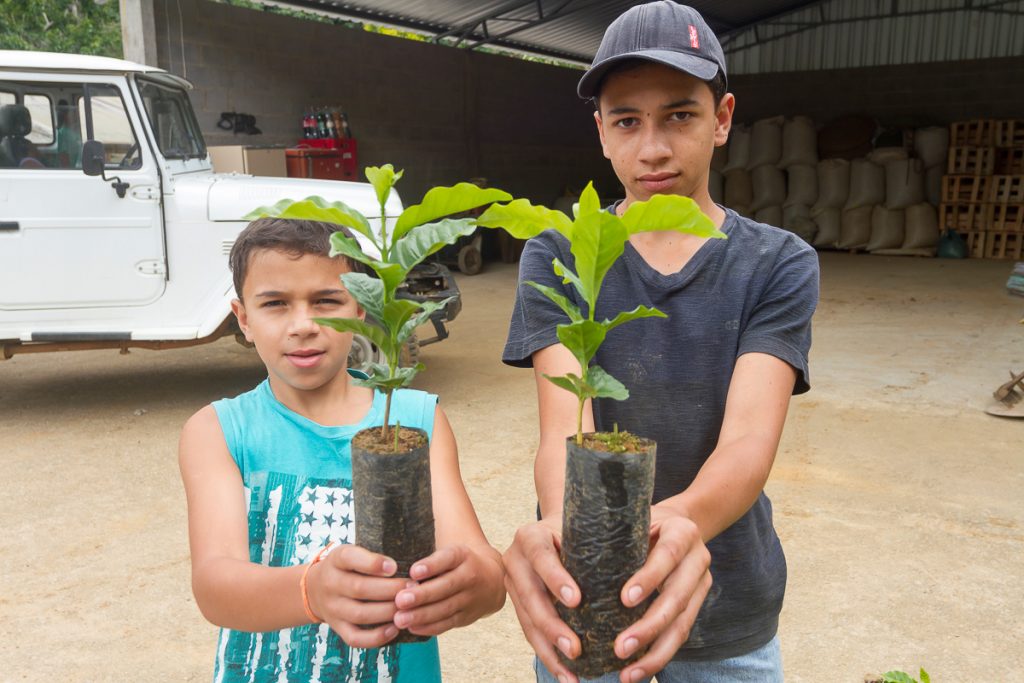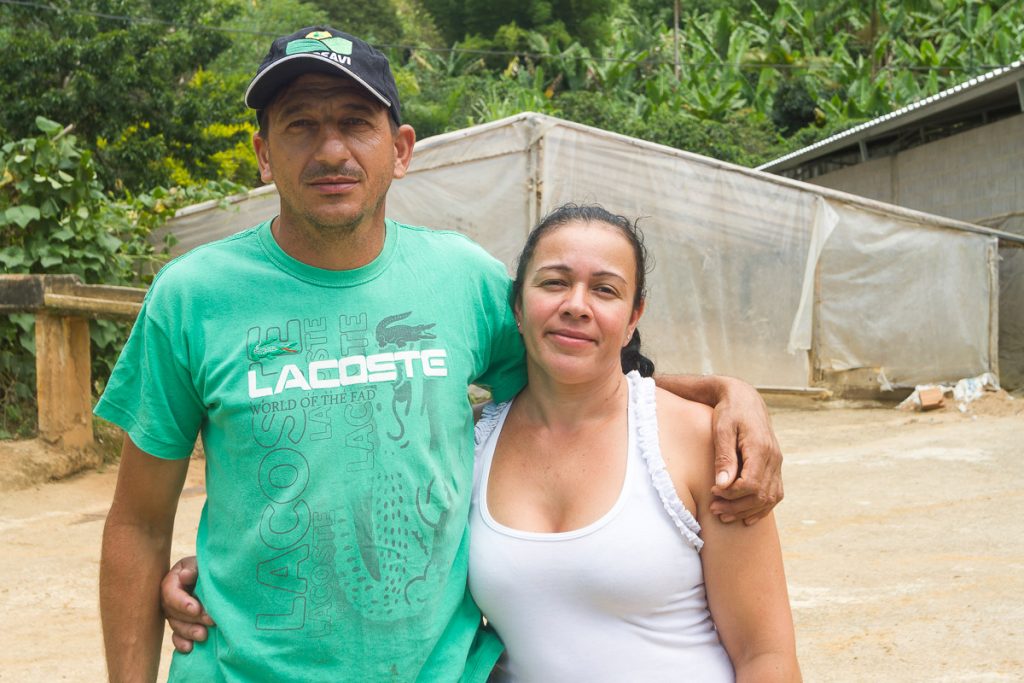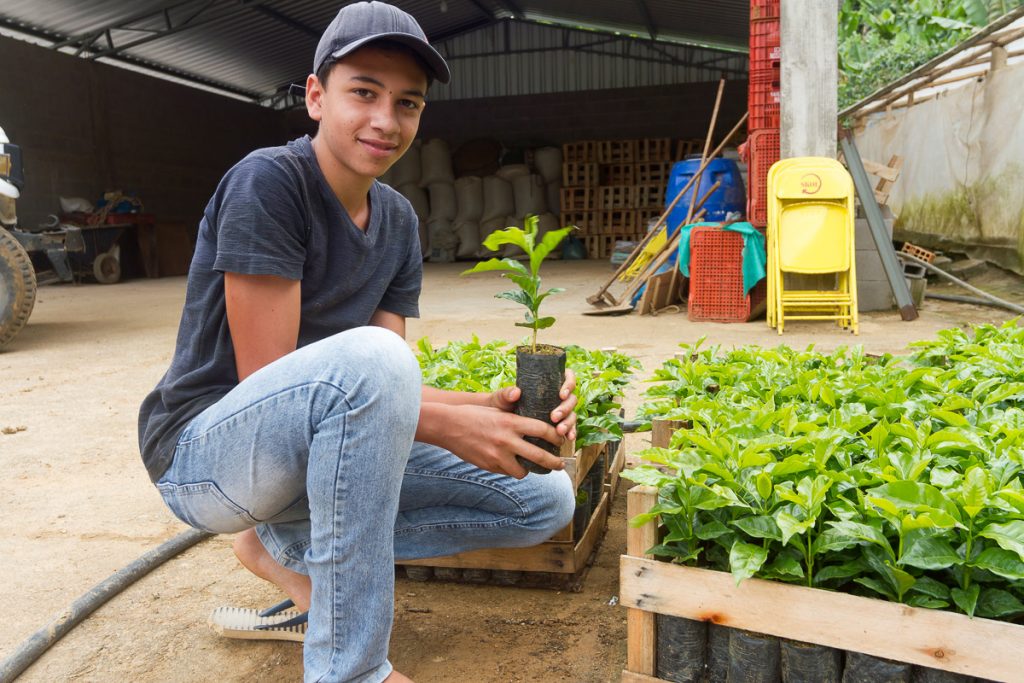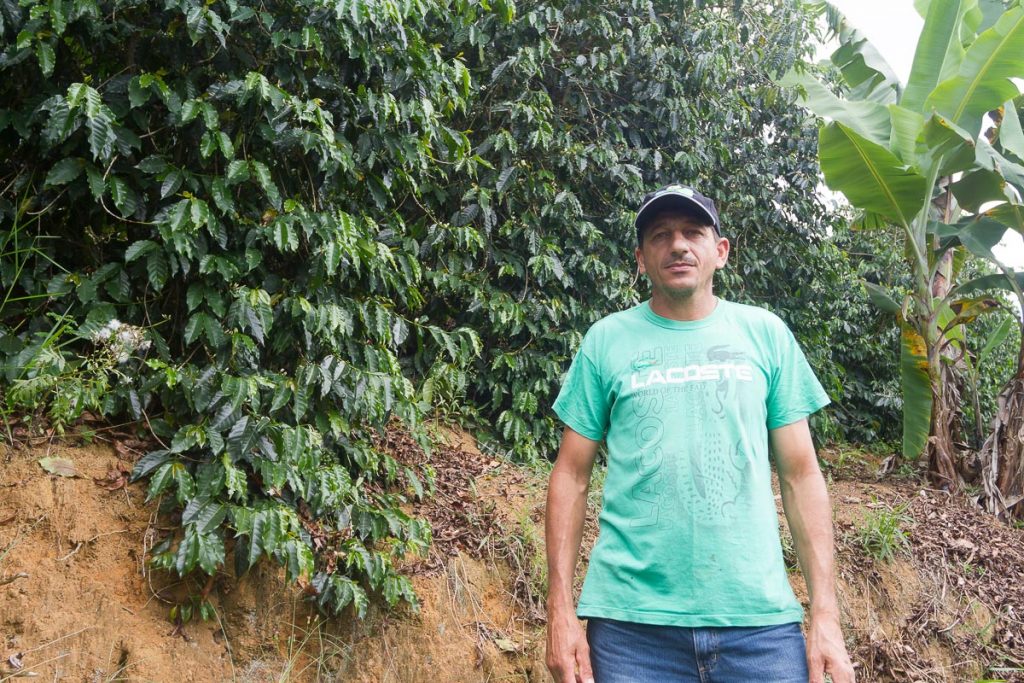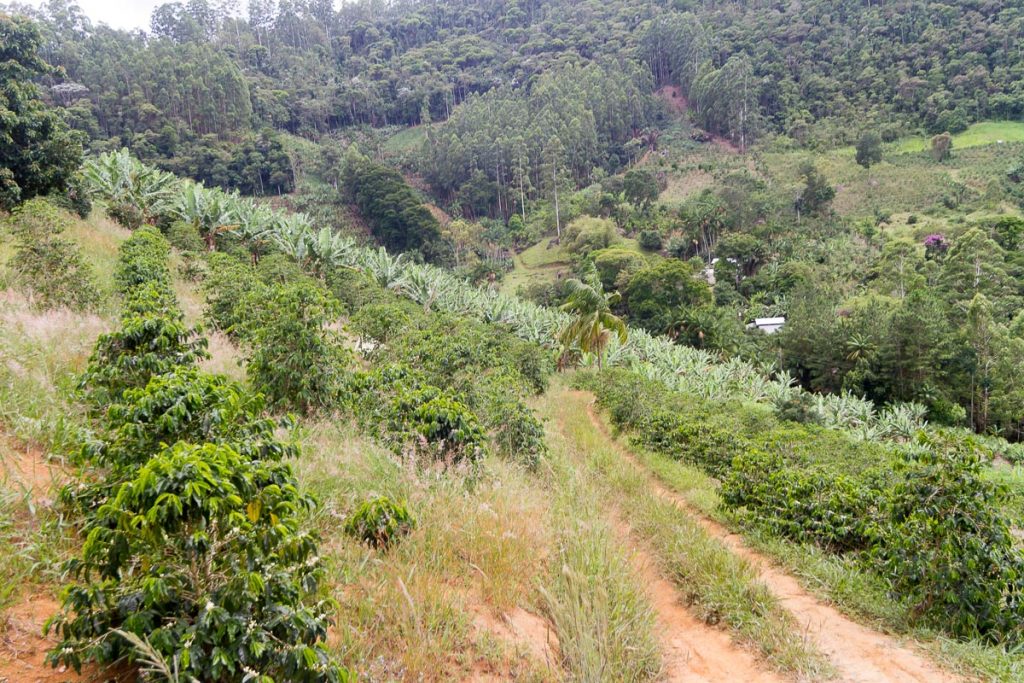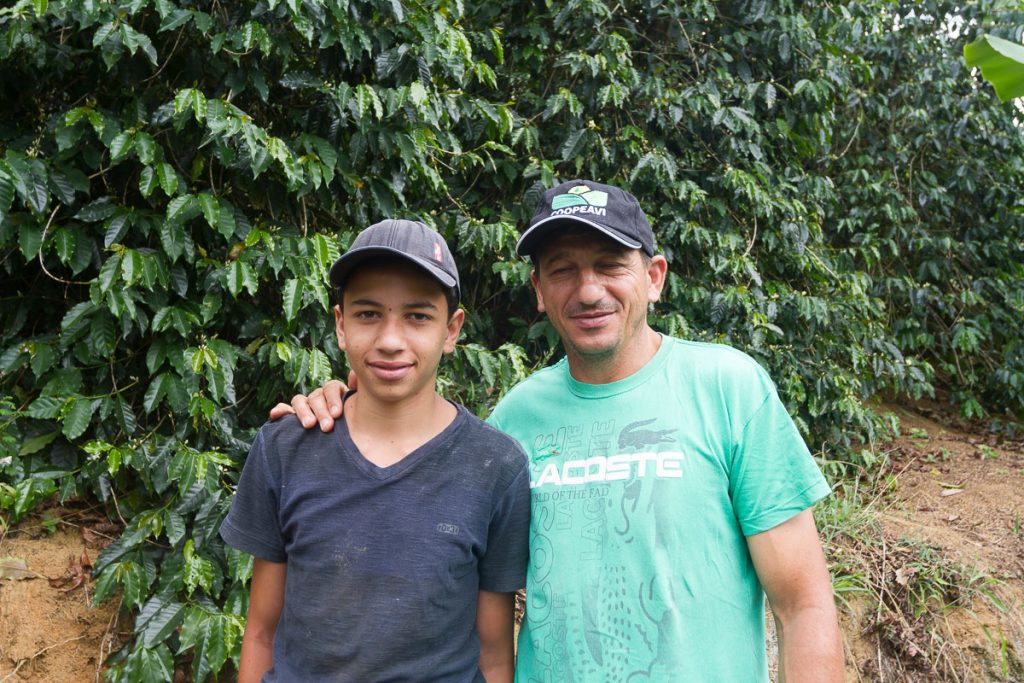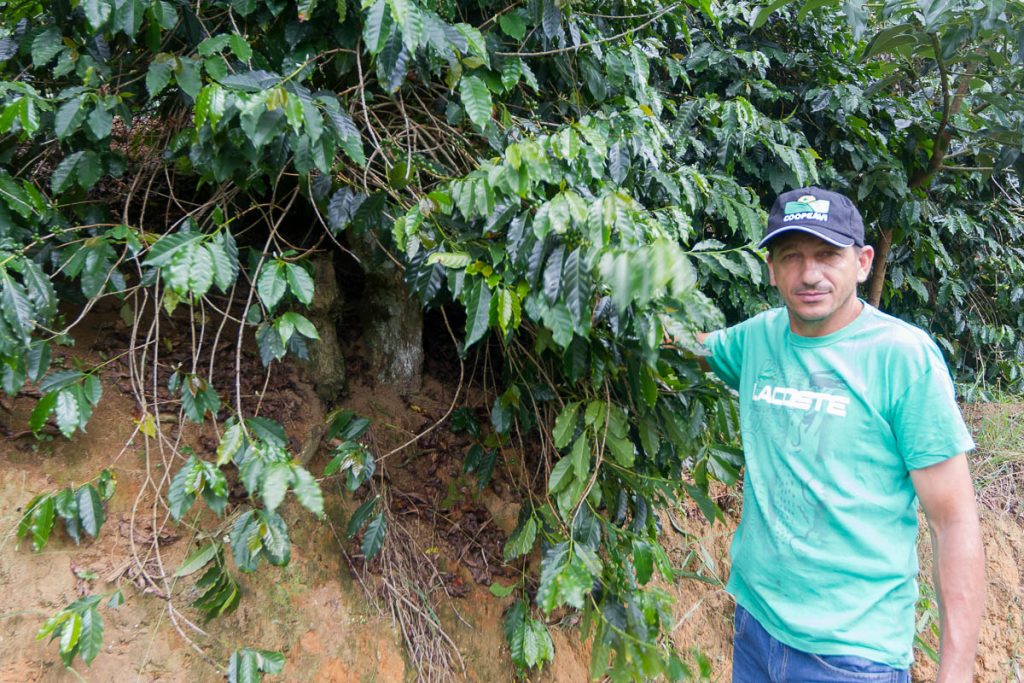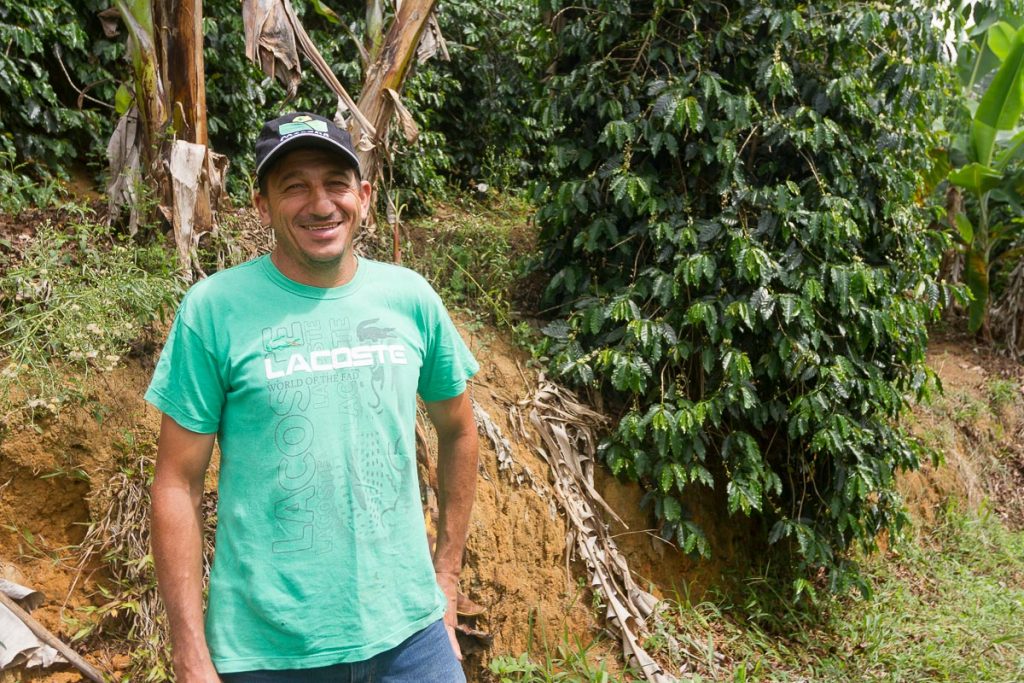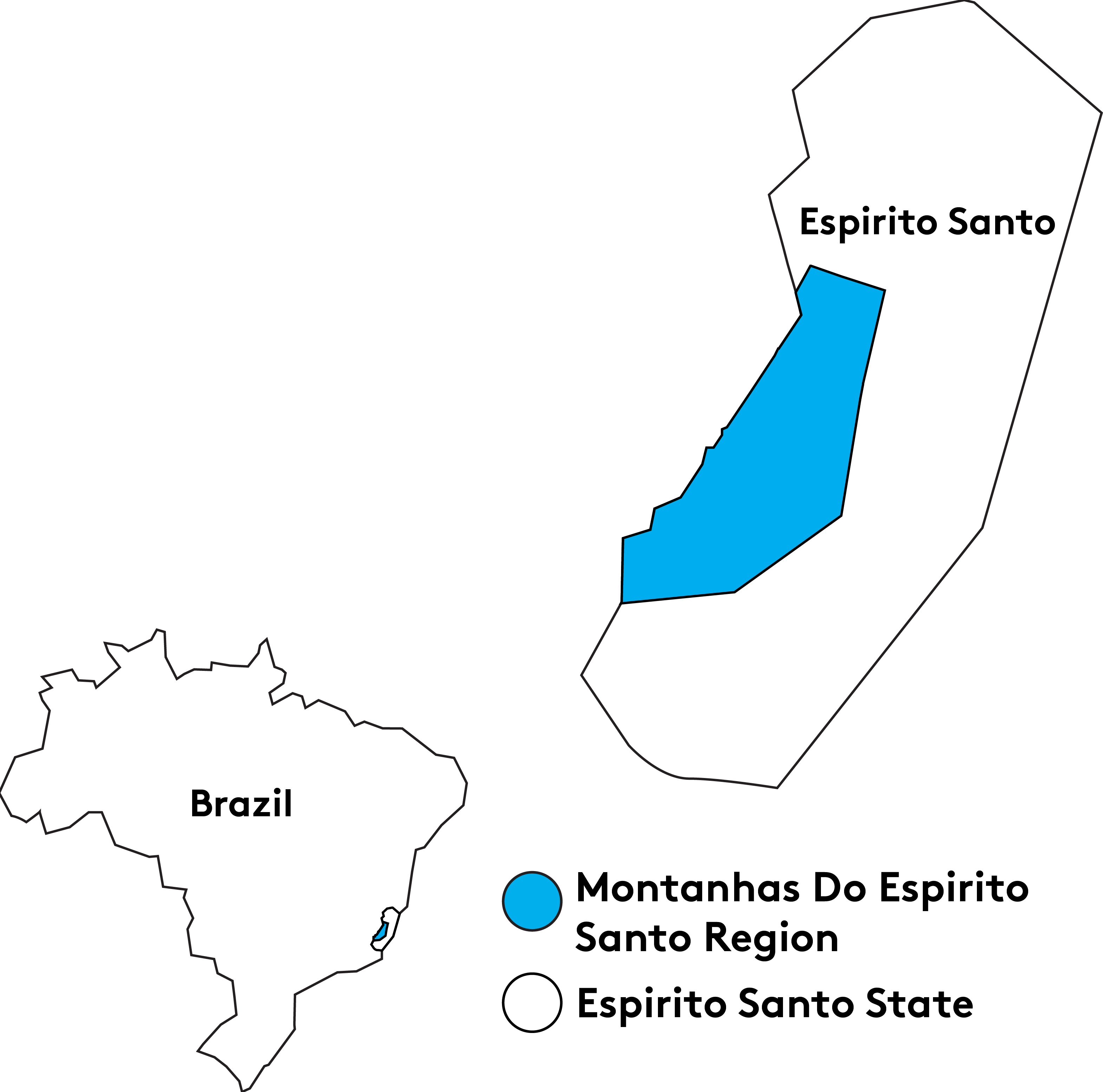Arriving in Vargem Alta, it is easy to understand why Italian immigrants chose the location to live at the end of the 19th Century, a period when farms abandoned by the Portuguese had become overgrown by forest. With an average temperature of 20 degrees C, the region’s robust landscape and climate are similar to that of Europe. The Italians established the roads that would later become highway ES-164. Founded in 1988, Vargem Alta was part of the Cachoeiro de Itapemirim district. Much of the municipality’s economy is still centered around family agriculture.
Coffee producer Sergio Daniel Peterle, from Santo Antonio de Taquarussu rural zone of Vargem Alta, sees specialty coffee production as a path forward.
Sergio is the second generation of coffee producers in his family, taking after his father, Antonio Peterle, who began to plant coffee on the land he inherited, which then had only a bit of beans and corn. Antonio was also working for a neighboring farm, and Sergio and his brothers helped their father with the difficult task of starting up a smallholder coffee farm.
Years later, Sergio married Rosangela Mariano Peterle, and together they continued producing coffee. At the invitation of his mother in law, Sergio Daniel took over the operations of his wife’s family’s farms, caring for three Arabica varieties—Catuai, Catucai, and Mundo Novo—on the small inherited property.
Initially, Sergio Daniel continued his mother in law’s traditional farming practices. But, after the 2007 harvest, he sold his first 10 bags of selected specialty coffee, depulped at his neighbor’s farm, for a better price. This set him on the path of continued investments in quality.
Sergio Daniel is the father of two sons who study in the morning and when they return home from school help with the depulping, sorting, and drying tasks. They happily observe new flowerings on the farm and Sergio Daniel describes the anxiety and excitement he feels when the first cherries begin to ripen and he imagines the harvest when everyone in the family will participate.
Sergio Daniel has 13,000 Arabica trees planted on the farm and harvested 130 bags of specialty coffee in 2017 and 170 bags in 2018. The small plot of the farm with 500 Mundo Novo trees has a history of more than 50 years of producing excellent coffee to drink.
Currently, the property has five hectares of the farm’s total twenty planted with coffee. Sergio Daniel notes that specialty coffee harvesting is especially complicated when all the coffee ripens at once and demands attention. But Alto Fruteiras has the tools for selective harvesting, a depulper, a covered drying area, and—most importantly—the constant support of the family.
